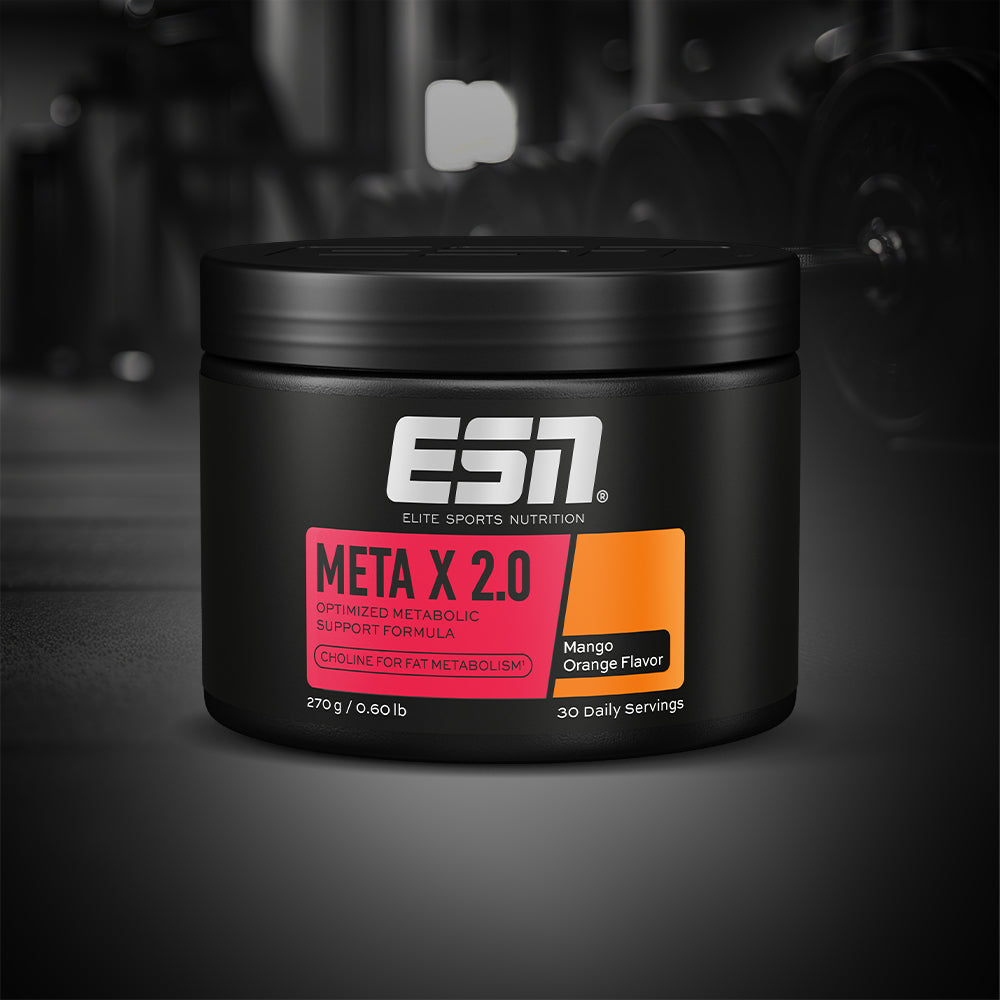Calorie Calculator
Easily and for free calculate your daily calorie needs based on your personal goal.
Do you have more questions?
Learn more about the calorie calculator and our products.
ESN Calorie Calculator – your path to a goal-oriented diet
Our calorie calculator enables you to create an individual nutrition strategy tailored to your fitness goals. Based on the information you enter, the calculator shows you your target calories: Whether you want to lose weight, maintain your weight, or gain weight, this kcal calculator adapts to your needs and goals. How? By calculating your daily calorie requirements and providing your target calories – the amount you should consume each day to best achieve your personal goal.
Knowing how many calories you should eat daily is key to reaching your fitness goals, as it allows you to plan and adjust your diet accordingly. Here’s why it matters:
1. Calorie calculator for weight loss
To lose weight, you need to create a calorie deficit – consuming fewer calories than you burn. Our calorie deficit calculator not only determines your daily calorie requirement but also provides a direct target calorie recommendation for achieving a moderate deficit for healthy weight loss. The target calories, plus tips on distributing protein, carbs, and fats, help you burn fat while maintaining muscle mass. Without this info, you risk eating too little or too much, which could slow your progress.
2. Calorie calculator for maintenance
To maintain your current weight, you need to balance calorie intake with calorie expenditure – consuming exactly as many calories as you burn through your basal metabolic rate (BMR) and activity. When you calculate your target calories for maintenance with our tool, this value equals your daily calorie expenditure based on your inputs. Sticking to your target calories helps ensure you don’t overeat and gain weight unintentionally or undereat and lose energy or muscle mass.
3. Calorie calculator for gaining weight
If you want to build muscle or gain weight, you need a calorie surplus – eating more calories than you burn. Our calculator estimates your daily calorie needs and gives you target calories to achieve a controlled surplus for muscle gain.
How to calculate your target calories – how our calorie calculator works
Here’s a simple step-by-step guide to making the most of our kcal calculator:
Your individual stats are the key to calculating your BMR – the calories your body needs at rest. Provide your gender, weight, age, height, and body fat percentage (BFP).
Indicate how active you are outside of training. Choose from “low active,” “somewhat active,” “active,” or “very active.”
Specify how often you train per week. The more accurate you are, the more precise your total calorie requirement will be. We’ve already integrated this into your target calorie output.
Choose whether you want to lose, maintain, or gain weight. Based on your goal, you’ll see your daily target calories plus macro distribution tips.
Good to know: You can’t yet calculate BMR and activity calories separately in our tool, but here are the formulas:
BMR (Men):
BMR (kcal/day) = 66.47 + (13.7 × weight in kg) + (5.0 × height in cm) − (6.8 × age in years)
BMR (Women):
BMR (kcal/day) = 655.1 + (9.6 × weight in kg) + (1.8 × height in cm) − (4.7 × age in years)
Activity calories:
Activity Calories = BMR × PAL value
PAL values:
Low active: 1.2–1.3
Somewhat active: 1.4–1.5
Active: 1.6–1.7
Very active: 1.8–1.9
Discover our products
Whether your goal is muscle gain, weight maintenance, or fat loss – our products give you the perfect support. From creamy protein shakes and clear protein drinks to delicious protein bars, hitting your daily protein target is easier than ever, supporting muscle growth and maintenance.1
Looking to bulk up? Try our weight gainer for optimal calorie and nutrient intake. Want to lose weight? Our calorie-free drink syrups and flavour powders are ideal for cutting sugar and calories during diet phases. Explore our must-haves and get the support you need.
1 Protein contributes to an increase in muscle mass. Protein contributes to the maintenance of muscle mass.























